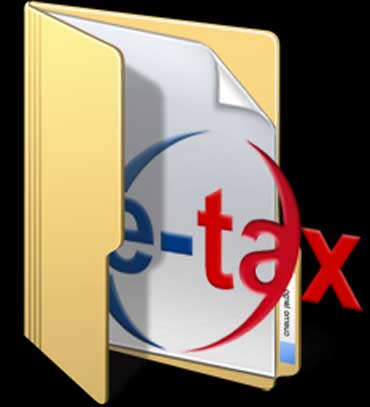Ashish Hemrajani
Usher in unified e-tax policy
"Bookmyshow's expectation from the budget has always been to get a unified e-tax policy for the country rather than for each individual state. Also a single clearance window for clearances for print on the go / print on demand ticketing which makes life really simple for consumers makes the inventory far more efficient and reporting for e-tax 100% accurate.
As India's largest entertainment ticketing company focusing on consumer experience is our key motive and all of this goes into doing just that."
"We expect sales from large format sporting and events business to grow many folds this fiscal. There is new found liquidity and exposure to outdoor events as a way of life and that jump could see growing at 150% year on year.
As India's first entertainment ticketing company we are hoping to deliver the same experience that we have been giving to consumers for movie ticketing by changing the way tickets are bought or sold, for events, concerts and cricket too."
Ashish Hemrajani is the founder & CEO of Big Tree Entertainment's BookmyShow
. . .
Budget 2011: What these 10 experts want
Jaswinder Ahuja
Encourage domestic electronic manufacturing which is yet to take off in the country
In the 2011-2012 fiscal year, the Indian economy will have to walk a tight rope between crossing the 'double digit growth barrier' and curbing inflation.
Increased financing of infrastructure development projects should encourage inclusive growth and reduce pressure on the Metros.
In this regard, technology can help ensure that measures undertaken to move India forward are not limited to urban centers alone, but percolate to all corners of the country.
Critical issues, relating to semiconductor and electronics industry that need to be addressed by the Union budget, center around steps to encourage domestic electronic manufacturing which is yet to take off in the country.
Extension of tax exemptions, funding of R&D grants, amendments to tax and duty structures, reservations in Government tenders for locally developed intellectual property along with promise of a clear and concise integrated Goods and Service Tax policy are some of the core announcements that are being keenly awaited.
Amendments in direct taxation policies with regard to ESOPs will be much appreciated by employees. ESOPs should be taxed as capital gains at the time the gains are actually realized.
The government should also take necessary steps to notify the safe harbour rules for transfer pricing.
Jaswinder Ahuja is the Corporate Vice President & Managing Director, Cadence Design Systems
. . .
Budget 2011: What these 10 experts want
Naresh Wadhwa
Provide access to education with improved quality
The budget should include a strategy for inclusive growth through measures that promote rural development and all round growth for segments of the community that can get marginalized while others are developing fast.
For India to sustain its GDP at current levels, government initiatives need to focus on grassroot level development, especially in the fields of healthcare and education.
Technology-based infrastructure such as broadband through traditional wired modes, or leap-frog to wireless modes, would also ensure that inclusive growth involves every corner of the nation, and is not limited to urban India alone.
Such investments in technology, whether through e-Governance, video-based solutions or broadband infrastructure will prove valuable for both rural education and healthcare initiatives.
In the Education sector, the focus should not only be on providing access to education, but also on improving the quality. This can be achieved through adequate budgetary allocation towards technology that makes distance learning initiatives, including vocational courses, viable in remote and rural areas. Additionally, government measures to help increase the pool of 'employable' population will greatly benefit the IT sector, which is one of the sunrise sectors in the Indian economy.
Similarly, in the healthcare sector, while investment in building additional primary health centers is absolutely necessary, the quality and effectiveness of healthcare infrastructure through the use of technology can be hugely enhanced.
Another important aspect of growth is facilitating financial inclusion of rural populations, to help bring them into the economic mainstream.
While the government's initiatives in areas such as UID will enhance rural banking penetration, additionally providing incentives to PSU and private sector banks will also be crucial for reaching out to the unbanked population.
On the industry front too, measures from the government to boost demand for investments in technology and e-governance - will be important. In addition, measures such as simplifying taxation and reducing red-tape for new projects will significantly bolster industry growth.
Naresh Wadhwa, President & Country Manager, Cisco India and SAARC
. . .
Budget 2011: What these 10 experts want
Sanketh Arouje
STPIs incentives are expected to be brought at par with SEZs
Budget 2011-12 Expectations - IT/ITES Sector
1. Continuation of the tax benefits provisions under STPI scheme
In the last union budget, the government had extended tax benefits for units in STPI by another year till March 2011.
Units set up in these parks are eligible for a 10-year tax holiday if they are notified before March 2012 and become operational before March 2014.
Even as the DTC is expected to be introduced from April 01, 2012, it would anyway do away with the tax holiday; thus the benefit could be extended by one year.
Large IT companies would be able to alleviate the tax burden arising from the expiry of tax holiday by moving into SEZs. However, SMBs, which form the bulk of the companies registered with STPI, will be severely affected, as they are still struggling in the post recession period and do not have the financial resources to face this challenge.
2. Bring STPI incentives at par with SEZ
The STPIs incentives are expected to be brought at par with SEZs. The industry expects that the disparity of treatment between the STPI and the SEZ units to be removed. The government should allow the STP units to transfer under the SEZ scheme.
If under the new DTC the tax holiday is not made available for the STP units, the only way in which STP units can avail of tax holiday under the DTC, would be, to shift to SEZ.
3. Increase spending on e-governance projects
The industry hopes that the government will increase its focus on e-governance projects. Recently, the government has made several investments in areas such as the computerisation of its various departments and investing in programmes such as NeGP and the UID project.
It is expected that the government will continue to invest in these kinds of projects which will help the domestic market grow in a sustainable manner.
Sanketh Arouje, Leader - Economic Analysis Group, Dun & Bradstreet India
. . .
Budget 2011: What these 10 experts want
Nirakar Pradhan
We need to have a defined road map for fiscal discipline
Budget 2011-12 is a unique opportunity before the government to improve its battered image before domestic public, boost trust and confidence of foreign investors.
I expect Inflation Control: Revamp PDS, address supply side issues, enhanced FDI in retail
I believe we need to have a Defined road map for fiscal discipline; Deficit target for FY 2012 should be contained at 4.8%, and Net Govt borrowings should be contained at Rs 3.5 trillion.
In my personal view, growth momentum will continue through higher infra spends. As this is the last year of the Plan period (2007-12), to increase spends in physical (roads, ports, power etc), social (health and education sectors) and financial (improved corporate bond market, enhanced FDI in Insurance) infrastructure.
In my opinion, a possible surprise could be a general reduction in tax rates/ increase in standard deduction limits, to buoy demand, and non-Plan could be the divestment target around USD 7-8 billion.
I believe, intent statement on key reforms like GST, DTC, liberalization in FDI limits etc are likely.
According to me, hike in excise duty in certain sectors like Auto & FMCG.
Nirakar Pradhan, CIO, Future Generali India Life Insurance Co Ltd
. . .
Budget 2011: What these 10 experts want
P Nandagopal
Incentivise long-term savings further, facilitate capital market access for insurance sector
The insurance industry is looking forward to support from the Government in spreading the benefits of insurance across more and more Indians. The tax incentives should clearly distinguish between short term and long term savings and offer a differential benefit to all those who choose long term of over 10 years.
Such a concession may not be limited to a specific product class but to the whole BFSI industry which will help all the entities in the BFSI space to join hands together to promote long term regular savings as a means to better economic and infrastructure development in this country.
Being in a capital-intensive business, life insurers need capital inflow on a regular basis for operational needs and the life insurance industry is also hoping that the Budget will unleash these sources of capital, which may include early access to capital markets, Tier II capital as is allowed for banks and also liberalization of promoter holding norms.
There should be clarity on pension reform bill also known as pension fund regulatory and development authority bill. This will facilitate a new pension system, based on defined contribution, which is open to all Indian citizens.
Insurance companies, which have the technical know-how in annuity and long-term liabilities management, should be allowed to participate in government pensions, NPS and also the provident fund management of the government.
With the opening up of insurance sector in 2001, many new insurers entered the insurance industry. However the tax laws have not kept pace with the regulatory changes and are facing certain tax challenges based on the present tax law.
With the implementation of the Direct Taxes Code 2010, which proposes significant changes in the taxation of life insurance industry, it is expected that the Government will take note of some of these at the very least and settle some long pending concerns when it comes into force in next Budget on April 2012.
Government should announce clear road map for usage of AADHAR platform not only for Identification of individuals but also for a micro payment settlement gateway that can help connect the citizens, banks, insurance companies, Government agencies and all other players in the BFSI space to bring about a financial inclusion revolution in this country which is long overdue.
P Nandagopal, MD and CEO, IndiaFirst Life Insurance Company Ltd
. . .
Budget 2011: What these 10 experts want
Ajjay Agarwal
Incentivise domestic manufacture of mobile hand sets
We hope that the government will lend support to domestic handset companies to set-up independent local manufacturing facilities by promoting favourable taxation and subsidy policies.
We think this is important because of the growing demand for mobile handsets in India. Even if a fraction of this demand is met by local manufacturing this could generate employment opportunities and also save valuable foreign exchange within the country.
From a business perspective, local manufacturing of mobile handsets not only acts as a safeguard against possible barriers to cost-effectively importing handsets, but also ensures that domestic handset companies will be able to better serve Indian consumers, by reacting to changing trends and needs faster while ensuring that quality is maintained.
For example, manufacturing of mobile accessories enjoys certain benefits in the form of zero custom and excise duties on the import of raw materials. The government should consider extending such support to players in the handset industry as well.
Further, an import duty of merely 1.6% is levied on mobile handsets, makes it lucrative for many local brands to import handsets, rebrand them and sell them in the Indian market at extremely cheap prices. However, there need to be safeguards and quality checks so that sub-standard products are not brought into the country and to prevent dumping. This can also have a positive impact on the environment as well by preventing dumping of hazardous products.
Another key aspect that we hope the Government will consider is the lack of uniform rates of VAT across the country. We hope that the implementation of the GST will be a step in correcting this discrepancy.
Ajjay Agarwal, Chairman and Managing Director, MAXX Group
. . .
Budget 2011: What these 10 experts want
Surjeet Singh
Extend the STPI scheme for another 1-2 years for small and medium sized companies
The IT industry has been an engine of growth for India and we hope that the government's Union Budget for 2011 will help continue its upward growth trajectory. We urge the government to extend the tax benefits under the STPI scheme for another year or two to empower growth of small and medium sized companies.
The exemptions under 10(A) and 10(B) were unaddressed in last year's Union Budget and we are hopeful that they are adequately addressed this year.
The last budget's plan on the increase in rate of Minimum Alternate Tax (MAT) from 15 to 18% saw adverse affects on the short-term cash flow of many companies and we look forward to a revision back to 15% this year.
We also hope the government can reduce the uncertainty around the double taxation for software companies.
The government has also been extremely supportive of the industry through their recent policies on R&D. However, we see that there is still immense scope for growth in the segment which will be facilitated by the tax sops, leading to increased investments in R&D and innovation.
Surjeet Singh - Chief Financial Officer, Patni
. . .
Budget 2011: What these 10 experts want
R K Jain
Provide 100% depreciation on new machines required for packaging tobacco products
Tax rate
At present corporate tax rate is 30%, which effectively comes to 33.22 %, and if DDT (Dividend distribution tax) of 16.60 % is added to it, the effective rate of outgoing comes to more than 49%.
This rate of taxation is more than the tax rate of 17% in Singapore, Hong Kong and Taiwan or 25% rate applicable in china, Indonesia and Malaysia. This takes away the Indian corporate at loss in channelising resources on R&D, New technologies and diversification, manpower growth etc.
Dividend distribution tax
Normal rate of tax is paid on dividend received from foreign subsidiaries. Dividend received should be taxed at 16.60% to give the indigenous as well as foreign subsidiary at level playing field and to give further boost to ODI or
Dividend received from foreign subsidiaries should be deducted in computing the taxable dividend for the purpose of Dividend Distribution Tax.
Ban on pouches etc
New investment will be required for packaging of tobacco products as per Supreme Court guidelines. Depreciation on investment in new machines should be allowed at 100% instead of general rate of 15% and expenditure on manpower should be given a weighted deduction to neutralize the Ban on use of plastic packaging and thus encourage the packaging industry.
Deemed Dividend U/s 2(22)(e)
In view of changed Economic Scenario and overall Business Environment, provisions of section 2(22)(e) relating to deemed dividend for Advances or loans given by closely held companies to shareholder should be modified to exclude promoters (shareholders) or companies in which such promoter shareholders have a substantial interest. This will give an opportunity for group companies to work in unison.
MAT rate
Minimum alternate tax rate should be restored to 15%. Moreover MAT should be restricted to zero tax companies i.e. companies availing Chapter VI A deductions. Those companies, which are, not getting deduction under Chapter VI A, the tax rate (Mat) should be nominal say 10%.
Depreciation rate
Higher depreciation rate of 25% should be allowed on Plant & machinery instead of 15% at present.
This will encourage the corporate sector to adopt new technologies faster leading to increase in productivity of manufacturing sector.
Profit linked incentives
At present incentives under section 80-IB and 80-IC are available in the form of deduction of profits derived from units located in notified backward areas or hilly areas.
To give an impetus to the equal growth of all parts of India, industries set up in villages or small towns areas across the Country should also be given some benefits akin to Section 80-IB or 80-IC.
Conversion of Pvt. Ltd Companies to LLP
At Present to escape capital gain tax, turnover of Pvt. Ltd. companies should not exceed Rs sixty lakhs in any of the three previous years before converting to LLP.
Period of three years should be restricted to one year and turnover limit of sixty lacs rupees should be increased at least Rs 50 crore.
This will open the door to many more entrepreneurs to convert this Private Limited or closely held Companies into LLP format.
Limit of cash payment
Present limit on expenditure on cash payment of Rs 20,000/- should be increased to Rs 50,000/-.
New limit will enable to move economy faster and will take care of inflation. New limit should also be made applicable in case of payment made for plying, hiring or leasing goods carriages from the existing limit of Rs 35,000/-.
R K Jain - Group President (Finance & Accounts), Uflex Ltd
. . .
Budget 2011: What these 10 experts want
Gyanesh Chowdhury
Remove customs duty on photovoltaic and solar thermal power equipments
The followings are the Expectations of Mr. Gyanesh Chowdhury, Managing Director - Vikram Solar Pvt Ltd, from Union Budget. Would request you to publish the same in your esteemed website / magazine.
1.Budget 2010 provided an increase of 61% of fund allocation to MNRE. This allocation could be further increased.
2. The customs duty for the equipment used for setting up photovoltaic and solar thermal power units was reduced by 5% in the last budget. The customs duty can be further reduced or even done away with this year as a measure to promote growth in the renewable energy space.
3. The National Clean Energy Fund was initiated last year to encourage and promote clean energy companies and technologies. The funds for this corpus should be raised.
4. The Government could also provide tax rebates for companies, which have been in the renewable energy sector
5. Loan availability for R & D in the clean energy sector should be made easier. Banks and other financing institutions should be encouraged to provide support in this regard.
6. Subsidies for Renewable Energy Products can be provided
Gyanesh Chowdhury, Managing Director - Vikram Solar Pvt Ltd












article